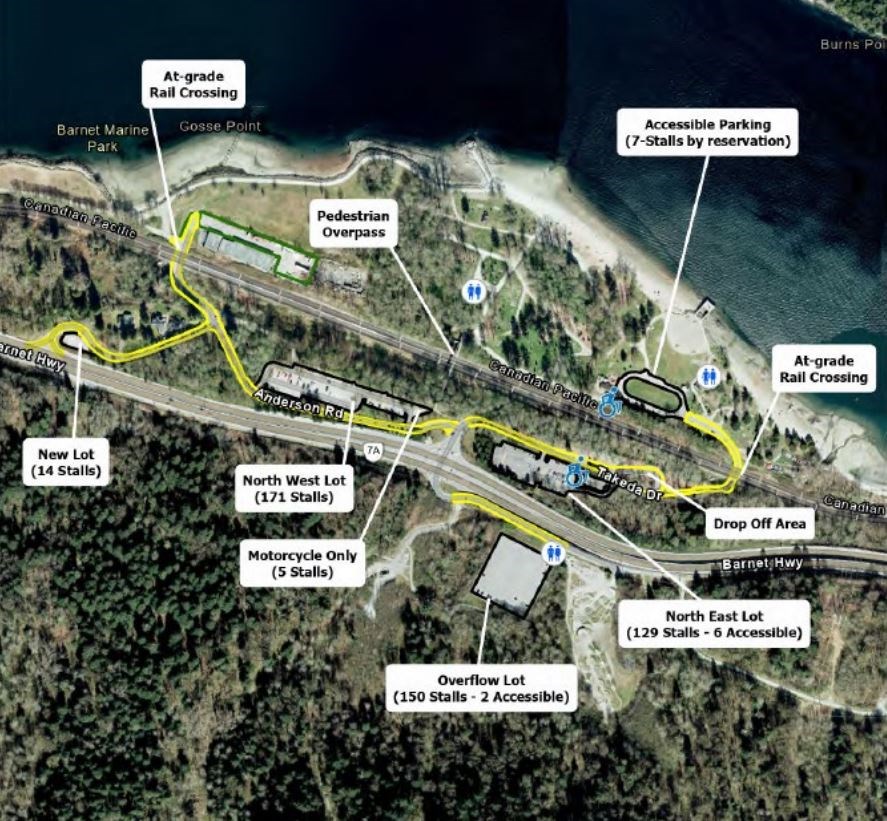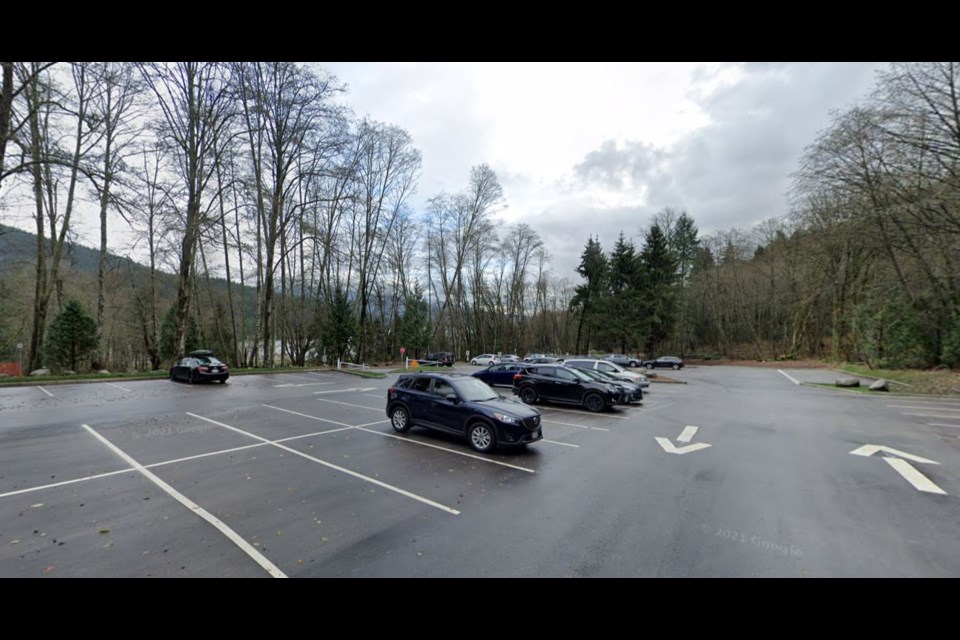Six months after Burnaby council roundly rejected the idea of paid parking at Barnet Marine Park, staff are asking the parks commission for feedback on just that.
Staff highlighted three options: introduce paid parking or parking pre-registration or keep the status quo at Barnet Marine Park.
Depending on the commission’s recommendation, staff will seek council support and then begin a two-year pilot project starting in 2024, according to a new report.
Earlier this year, Mayor Mike Hurley rejected the idea of paid parking at Barnet Marine Park.
“I think to have parking charges there would be unfair to families,” he said at a meeting June 19.
But the park has a “high demand,” according to the staff report, especially during the summer peak season when there can be more than 1,900 daily visitors.
The city's general manager of parks, Mary Morrison-Clark, told councillors Barnet Marine Park has seen a “massive increase in activity” since the pandemic.
“It got to the point on weekends where it was quite dangerous,” Morrison-Clark said at a budget meeting Oct. 23.
“There were cars lining up along Barnet; staff that were on-site were getting their feet ran over; they were getting sworn at by people that couldn’t find parking,” she said.
The park has three parking lots with a total of 450 stalls.

The city pays around $250,000 in staffing costs over the summer months for parks staff, bylaw officers, RCMP and external traffic management personnel to ensure on-site safety at the park, according to staff in June.
Despite two electronic signs that display “Lots Full” at the entrance to the park, staff said traffic congestion and lineups persist as “vehicles continue to circulate the lots in search of vacant parking stalls.”
Staff included pros and cons for the three options.
The report noted the pay parking program would use on-site parking stations and parking apps and encourage a higher visitor turnover rate.
The rate structure could be flexible, such as time limits during the winter season and pay parking during the summer peak season.
Staff said this option would allow for revenue generation to fund maintenance, infrastructure improvements and conservation.
It could lead to less overcrowding of vehicles in the lots, decreasing the safety concerns.
But pay parking also “can be seen as inequitable, as it may disproportionately affect marginalized communities and discourage diverse participation in outdoor activities.”
It could also lead to visitor dissatisfaction, negative reviews and public backlash against parks management, the report said.
Pre-registration for parking, similar to what is in place at Buntzen Lake and Joffre Lakes, would use a free registration system to manage the parking.
Staff said free parking makes the park more accessible to people, regardless of their financial situation, and can reduce traffic congestion by distributing visitor arrivals more evenly throughout the day.
But staff also noted it means it could discourage visitors who prefer spur-of-the-moment trips to the park.
The parks commission, an advisory body to council, will discuss the options at a meeting Tuesday, Dec. 5.





.png;w=120;h=80;mode=crop)